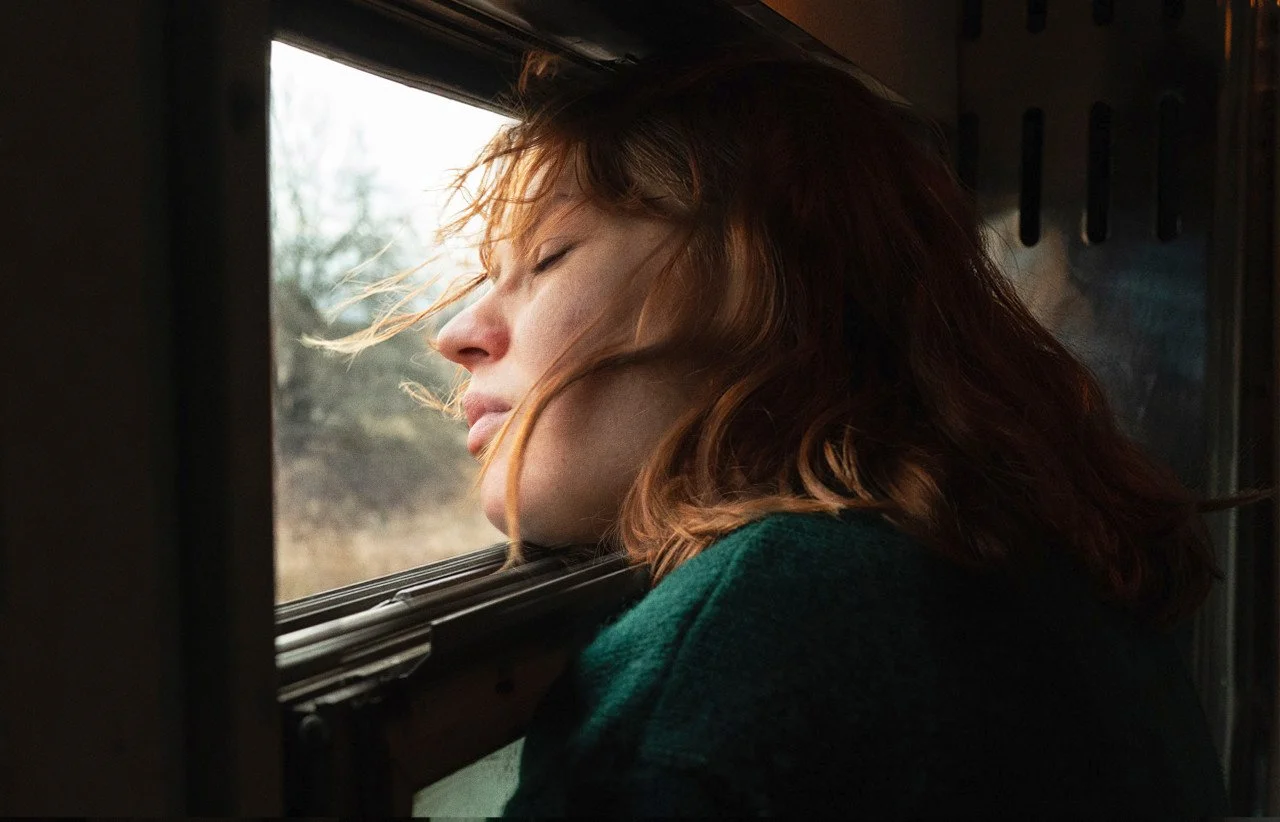Compartment No. 6: Strangers Become Friends on A Train Ride To The Russian Arctic
By Liam Lacey
Rating: A
One of the most critically celebrated films of the year, and a best picture Oscar nominee, is the Japanese drama Drive My Car, a film which spends a lot of time in a vehicle as a man and woman share their experience of loneliness.
That’s also the setup for Compartment No. 6, a sophomore drama from Finnish director Juho Kuosmanen (The Happiest Day in the Life of Olli Maki) which won the runner-up Grand Prize at Cannes last year.
The film follows Laura (Seidi Haarla), a Finnish archeology student, travelling in Russia from Moscow to the northern port city of Murmansk, who finds herself forced to share a train compartment with a boorish young miner.
Adapted from a novel by Finnish writer Rosa Liksom and set in brutal cold of a northern Russian winter or in a cramped jostling train car, Compartment No. 6 somehow lands in an unexpected warm place between the grim and the serio-comic.
The film apparently takes place in the late nineties: Laura is on her way to see the famed Kanozero petroglyphs, rock paintings from stone age artists, discovered in 1997. There’s a reference to Titanic. The Sony Walkman and bulky video camera she carries in her knapsack are artifacts of the age before smart phones.
As well as an indictment of Russian customer relations (surly train conductors, unhelpful waiters, suspicious hotel clerks), the film is a reminder that, despite more than 70 years of communism, the classless society thing never really took hold.
That’s clear enough from the first scene, an academic party in Moscow apartment, where Laura has been renting a room from Professor Irina (Dinara Drukarova), a fiercely vivacious woman in her forties who has taken Laura as both a tenant and her lover.
Irina introduces Laura to her colleagues as her new “young friend” with a patronizing smile, and then, while the professors hammer back vodka, embarrasses her during a guess-the-author trivia game. Laura offers the name of a Russian writer. Close, says Irina brightly, but the answer is Marilyn Monroe.
It is, no surprise, Irina’s idea to send Laura off to Murmansk to look at petroglyphs, perhaps so she can pursue new friends. In any case, the trip is educational. As one older professor intones, “It’s easier to understand the present if you study the past.”
When Laura first enters her train compartment, she’s deeply unimpressed by her travelling companion, Ljoha (Yuriy Borisov) a young skinhead who’s already drunk, spraying cigarette sparks and tangerine peels around the space. Immediately, he begins bragging about the superiority of being Russian to whatever she is. (He wrongly guesses Estonian.)
“Russia is great. We beat the Nazis! The Moon. We went there,” he tells her. Later, when he makes a crude sexual suggestion, she leaves the compartment, hides in the dining car, tries unsuccessfully to bribe the conductor for a new berth, and wanders among the third-class passengers. Only after Ljoha has passed out can she return to the compartment to sleep.
When the train stops in St. Petersburg, she’s determined to return home but when she reaches Irina on the phone, she realizes her mentor-lover has already moved on. Back on the train, she manages to have some conversation with Ljoha, who is going to work at a large mining and ore processing plant.
He’s mystified by her interest in old rocks, so she pulls out the quote she heard at the party: “It’s easier to understand the present if you study the past.”
Clearly, she’s pulling educational rank and you can see the slight in at first, he’s deliberately vague about his work, insisting he’s raising money to go into some undefined “business.” Some détente is reached when, at an overnight stop, Laura impulsively decides to go with Ljoha to the home of his stepmother (Lidia Kostina), an adorable calm elderly woman, who while Ljoha sleeps off his drunkeness, shares shots and eccentric ideas with Laura about surviving as a woman (“Every woman has inside her a small animal.”)
While the relationship has moved from hostile to friendly, it hasn’t sparked romantically, Ljoha is clearly resentful and jealous when Laura invites a fellow Finn (Tomi Aatalo), a guitar-strumming traveller to join them in their compartment. As the tourist drones a version of The Trogg’s “Love Is All Around,” Laura peeks at Ljoha outside the train window, smoking and throwing snowballs at an invisible target.
Some time later, when she’s lost her camera and all her images of Moscow, she tries to explain how much she loved that life — the books, the art, the high-ceiling apartments. Ljoha looks at her intently, like a little like a dog trying to understand a quadratic equation. He’s sympathetic but she might as well be telling him about her recent time on the moon.
To its credit, Compartment No. 6 doesn’t go to the places where you expect it will but stands as an eccentric tough-minded and humane film featuring two beautifully calibrated performances that swing from spiky antagonism to compassion. It’s also a film that reminds you of those pre-smart phone days, when strangers travelling together occasionally made eye contact, shared things that mattered and held on to those memories for years.
Compartment No. 6. Directed Juho Kuosmanen. Written by Andris Feldmanis and Joho Kuosmanen. Starring Seidi Haarla, Yuriy Borisov, Dinara Drukarova, Lidia Kostina, Tomi Alatalo. Opens February 11 in Toronto (TIFF Bell Lightbox), Vancouver (Vancity); in Montreal on February 18 and other cities across Canada in coming weeks.


